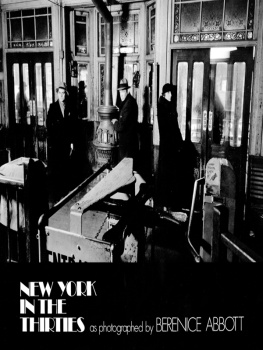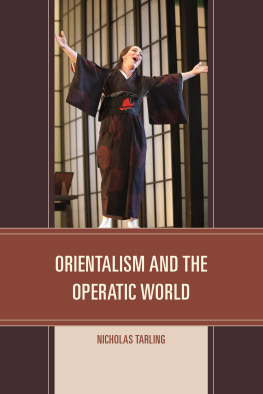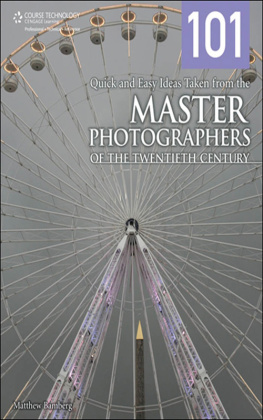These two plays, written one after the other, are more strongly contrasted than any other of Racines eleven tragedies, and might each be thought of as exceptions in his output.
Bajazet (1672), much the less familiar play to a modern audience, is his most violent drama; it ends, like
Phdre, with a female characters onstage suicide, here the culmination of a vividly described sequence of offstage murders. The air of bloody menace that hangs over the play from the outset derives in part from the history it enacts, a recent episode in Turkish history. This choice of subject was controversial, since French neoclassical drama, at its apogee in the work of Corneille and Racine, found its subjects on principle in antiquity or in the Bible. But in this instance Racine was working with material in living memory, something excused in his defensive Second Preface to the play by his claim that the manners and morals of the modern Turks were so remote from those of France that his characters absent sultan, scheming vizier, captive prince and ferocious slave-turned-sultaness could be thought of almost as dwellers in another age. The setting, in a claustrophobic space within the harem at Constantinople, menaced from both without and within, seems to license a violence of emotion as well as of deed.
Violent too are the repeated reversals of fortune, and the terrifying acceleration of the play towards its inexorable catastrophe. With Brnice, first performed two years earlier, Racine had had to counter quite different criticism, that the play, in which no one dies, was insufficiently violent to qualify as a tragedy. His defence of this hauntingly beautiful play was that blood and death are not essential to such dramas, which require above all grandeur of action by heroic figures, the power to excite the emotions, and that majestic sadness cette tristesse majestueuse which is all the pleasure of tragedy. Such sadness is indeed the keynote of the play, and the avoidance of much of the customary machinery of tragedy is one of the things that make it feel so disconcertingly modern. It presents the agonising enactment of a foregone conclusion. The critical event in the play the death of Tituss father, the Emperor Vespasian has happened a week earlier.
Thereafter Titus knows that his separation from Berenice is inevitable. The breaking off of a great love affair involves too the hopes of Antiochus, himself long in love with Berenice. The play pushes all three of its principals to the brink, not of revenge but of self-murder, before in her sublime last speech Berenice redeems and directs them all in an act of collective abnegation. Many tears are shed, but not a drop of blood. The effect is unconventional, and profound: the pained acceptance of the irreconcilable in human affairs, and the surrender, by each of the main characters, of the person they most love. No one will ever capture in English the music of Racines verse, generated by a strict form which, inescapable as time itself, rises on occasion to incantatory heights.
All his plays are written in rhyming alexandrines a twelve-syllable line alien to English poetry. The heroic couplet (rhyming pentameters) was used by Dryden in several plays contemporary with Racines, and Thomas Otway, later the author of Venice Preservd, made a rhyming translation of Brnice in 1667. But the dangers of both monotony and comedy in English, where rhyme is far more emphatic than in French, make it essentially unsuited for tragic plays. When Dryden wrote his greatest play, All for Love (a neoclassical version of Antony and Cleopatra), he did so in blank verse; and my feeling is that blank verse, as the staple form of English verse tragedy from the Elizabethan period on, is the proper, if still very inexact, parallel to alexandrine couplets, the staple form of the French. I have none the less tried to translate both plays couplet for couplet, and so to preserve the formal containment of Racines thought and the irresistible architecture of his great speeches. There has been an occasional nervous tendency among English translators, raised on the richly metaphorical theatre of Shakespeare and trained to avoid repetition as a stylistic fault, to introduce colour and variety into their versions of Racine Robert Lowells version of Phdre being perhaps the most egregious example.
Racine rarely uses more than a handful of metaphors in an entire play, his language is essentially direct and unfigurative, and his vocabulary, though highly charged, is small and repetitive about two thousand words as against the twenty thousand of Shakespeare. I have done my best to respect these restrictions, and hope by choosing an idiom which is neither modern nor seventeenth-century pastiche to have conveyed something of both the clarity and the otherness of Racines incomparable originals. Alan Hollinghurst, August 2012
Berenice was first performed in this translation at the Donmar Warehouse, London, on 27 September 2012. The cast was as follows:
Berenice Anne-Marie Duff
Titus Stephen Campbell Moore
Antiochus Dominic Rowan
Phenice Rosie Jones
Paulinus Nigel Cooke
Arsace Kurt Egyiawan
Rutilus Derek Howard
Director Josie Rourke
Designer Lucy Osborne
Lighting Designer Oliver Fenwick
Sound Designer Emma Laxton
Composer Michael Bruce
Titus reginam Berenicen, cui etiam nuptias pollicitus ferebatur, statim ab urbe dimisit invitus, invitam. Which is to say that Titus, who was passionately in love with Berenice, and who even, it is believed, had proposed marriage to her, sent her away from Rome, against his own will, and against hers, in the first days of his being Emperor. This deed is famous in history, and I have found it very suitable for the theatre, on account of the violence of the passions which it could excite there. Indeed, there is nothing more touching in all poetry, save the separation of Aeneas and Dido, in Virgil.
And who could doubt that that which could provide matter for a whole book of a heroic poem, where the action lasts for several days, could not suffice for the subject of a tragedy, which can last only for a few hours? It is true that I have not pressed Berenice so far as to kill herself like Dido, since Berenice, not having here with Titus the final involvement that Dido had with Aeneas, is not obliged as Dido was to give up her life. Even so, her final farewell to Titus, and the struggle she has to prepare herself for it, is not the least tragic aspect of the piece, and I dare hope it will excite in the spectator emotions just as keen as the others did. Tragedy does not absolutely require blood and death; it is enough that the action be grand, the actors heroic, that the passions in it be excited, and that everything in it be charged with that majestic sadness which is all the pleasure of tragedy. I believed I should be able to discover all these elements in my subject. But what pleased me more is that I found it extremely simple. For a long time I had wanted to see if I could fashion a tragedy with that simplicity of action which appealed so strongly to the ancients.
For it is one of the foremost precepts they have left to us. Whatever you do, says Horace, always be simple, and unified. They admired Sophocles Ajax, which consists of nothing more than Ajax killing himself out of regret, caused by the rage into which he had fallen after being refused the arms of Achilles. They admired Philoctetes, whose subject is Ulysses, who comes to seize the bow of Hercules. Even Oedipus, though full of revelations, is less loaded with matter than the simplest tragedy of today. Finally we see that the supporters of Terence, who raise him with good reason above all the comic poets for the elegance of his diction and for the truthfulness of his morals, do not fail to admit that Plautus has a great advantage over him in the simplicity which characterises almost all Plautuss subjects.











